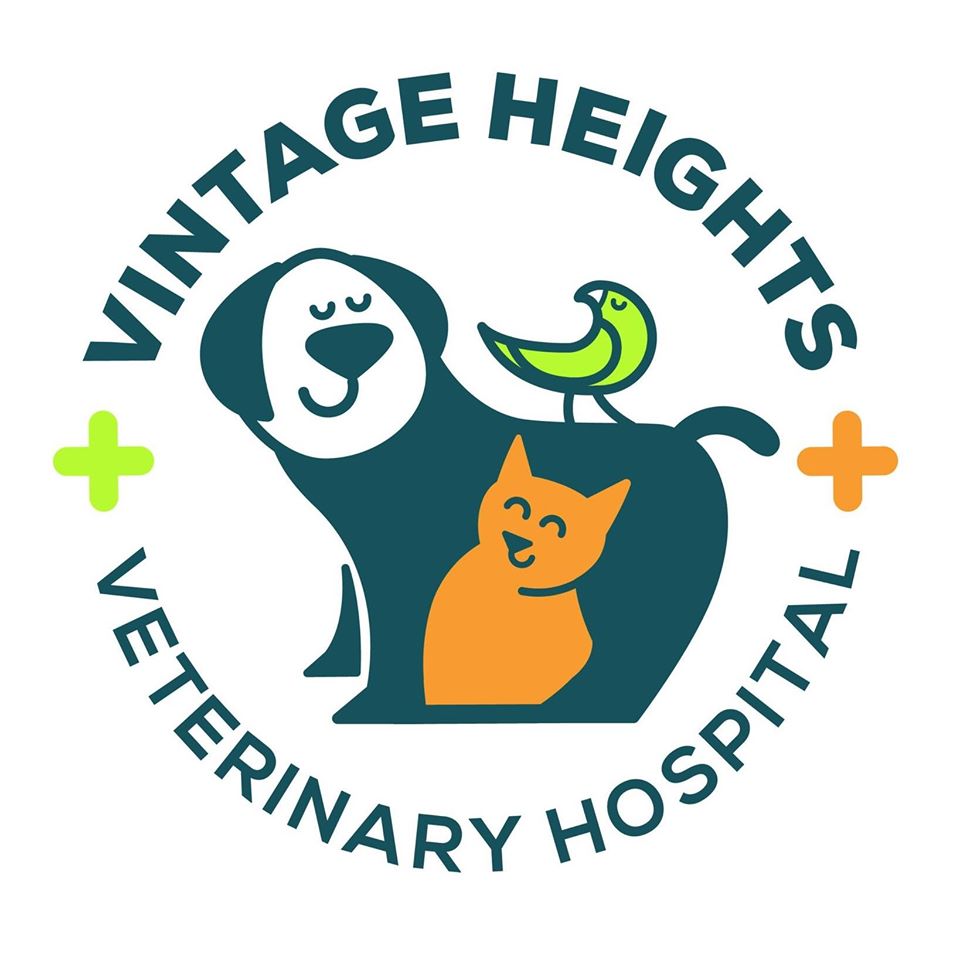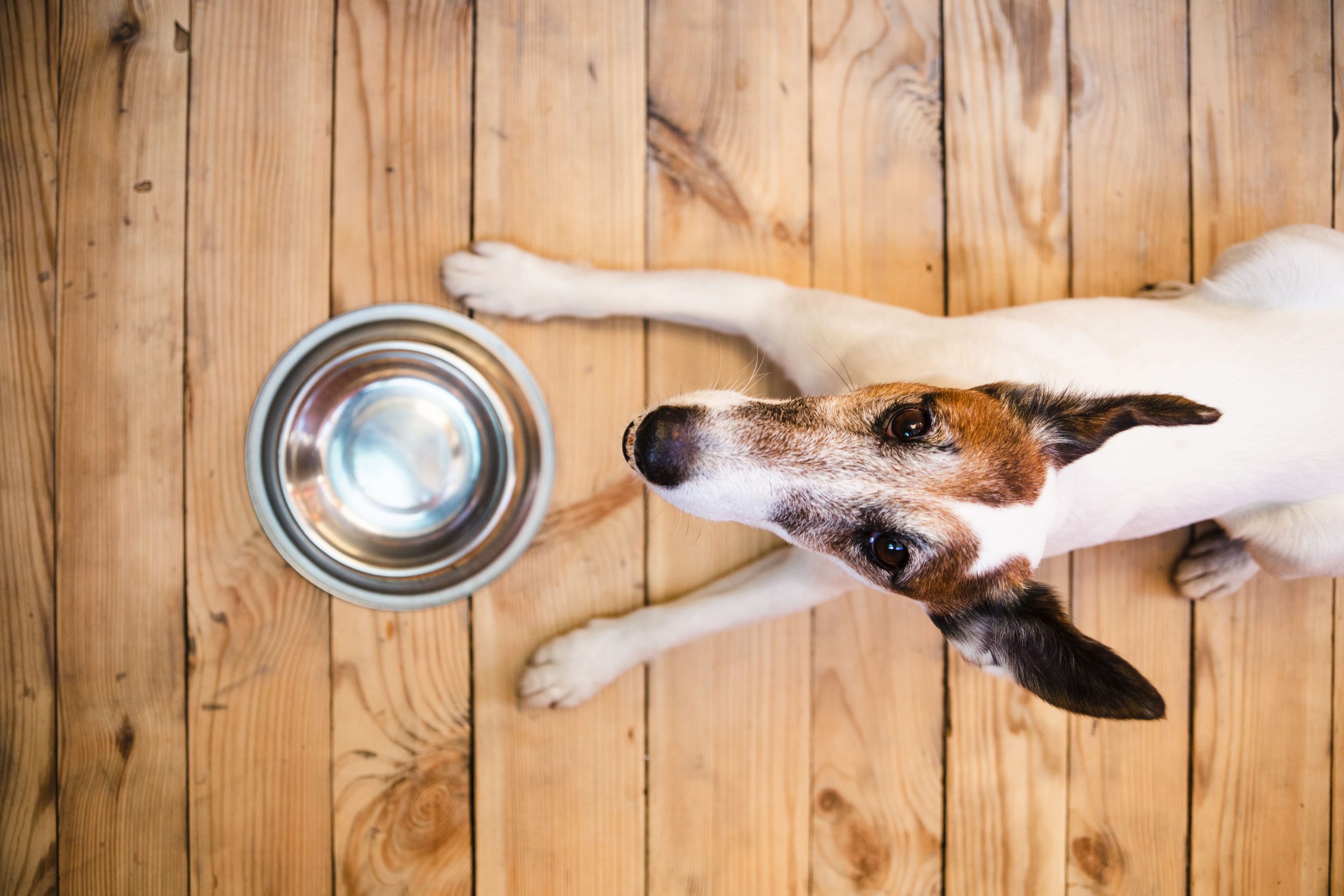
Remove food & water
Please remove food and water by 10pm the night before the surgery. It is important that your pet have an empty stomach the morning of the surgery, as anesthesia can cause vomiting. We would like to have your pet here at the clinic between 7:30am and 8:00am the morning of the surgery. We ask that you allow yourself 10-15 minutes to go over the surgial paperwork. A technician will go over the paperwork and explain the procedure to you at that time and have you sign some surgical release papers.
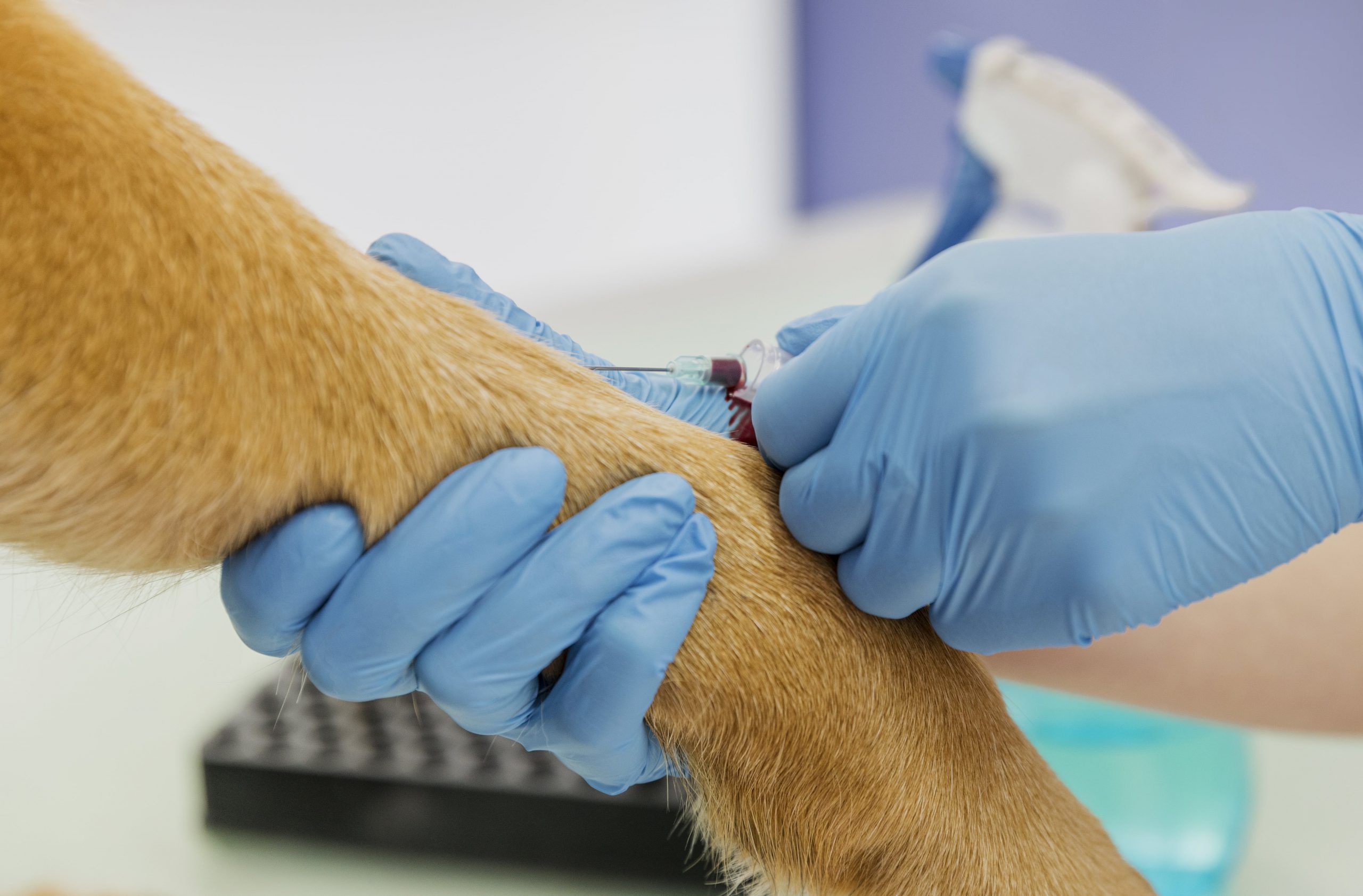
Pre-surgical Bloodwork
It is highly recommended that all patients undergoing surgery and anesthesia have pre-surgical blood work done. This is to ensure that te organs (kidneys and liver) are functioning properly to allow your pet to go under and wake up safely from the anesthesia. This blood work is required for animals over 3 years of age.
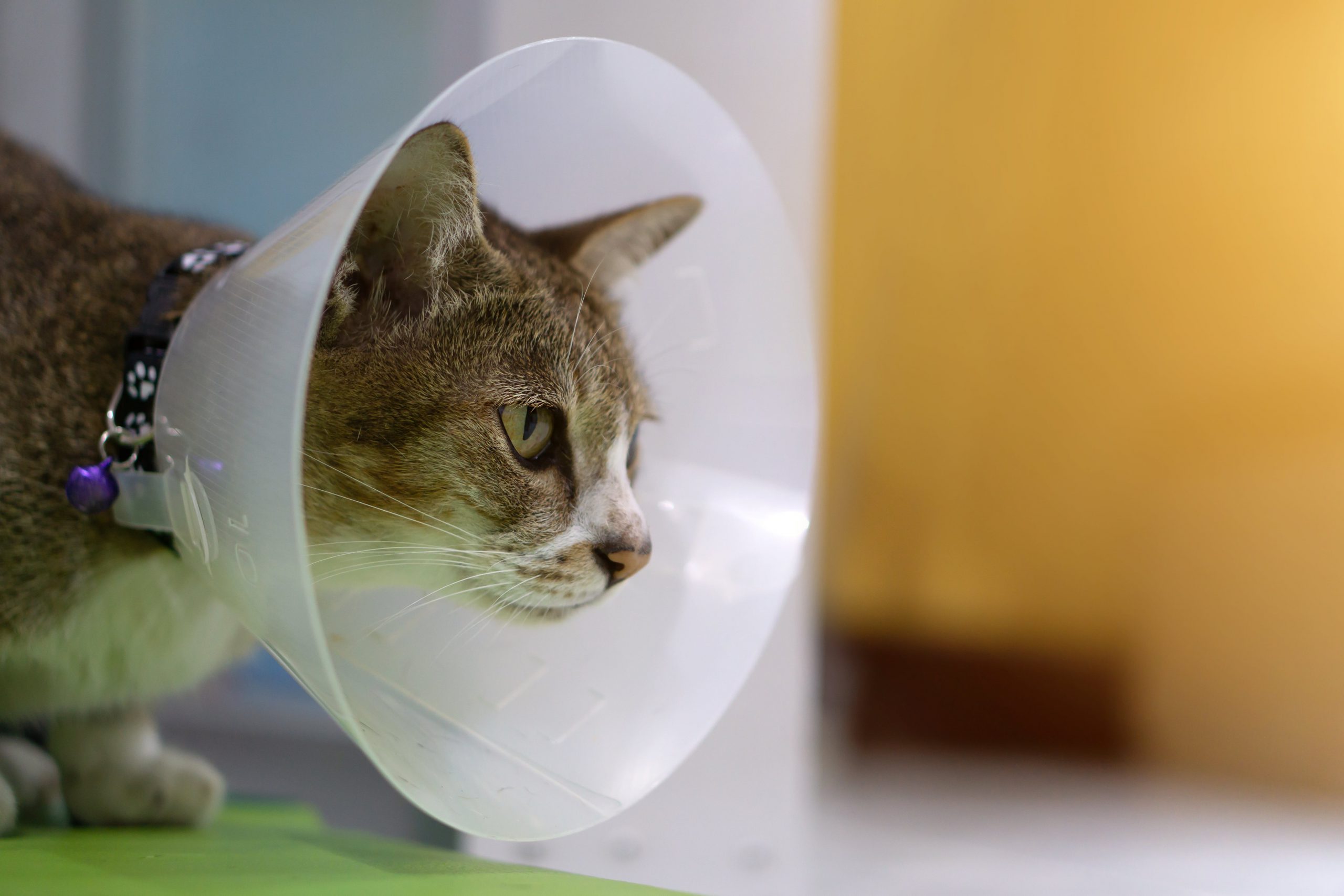
What happens after surgery?
We will contact you by phone when your pet’s surgery is over. Your pet will be somewhat groggy after the surgery, but will be awake by the time you pick your pet up. Spay and neuter patients are able to go home the same day after 4:00pm. All orthopedic patients will spend the night and will be released after 10:00am. The morning after the surgery, all patients are checked and offered breakfast. We will contact you first thing in the morning if a complication should occur. You will receive a complete set of instructions on how to care for your pet when you take them home.
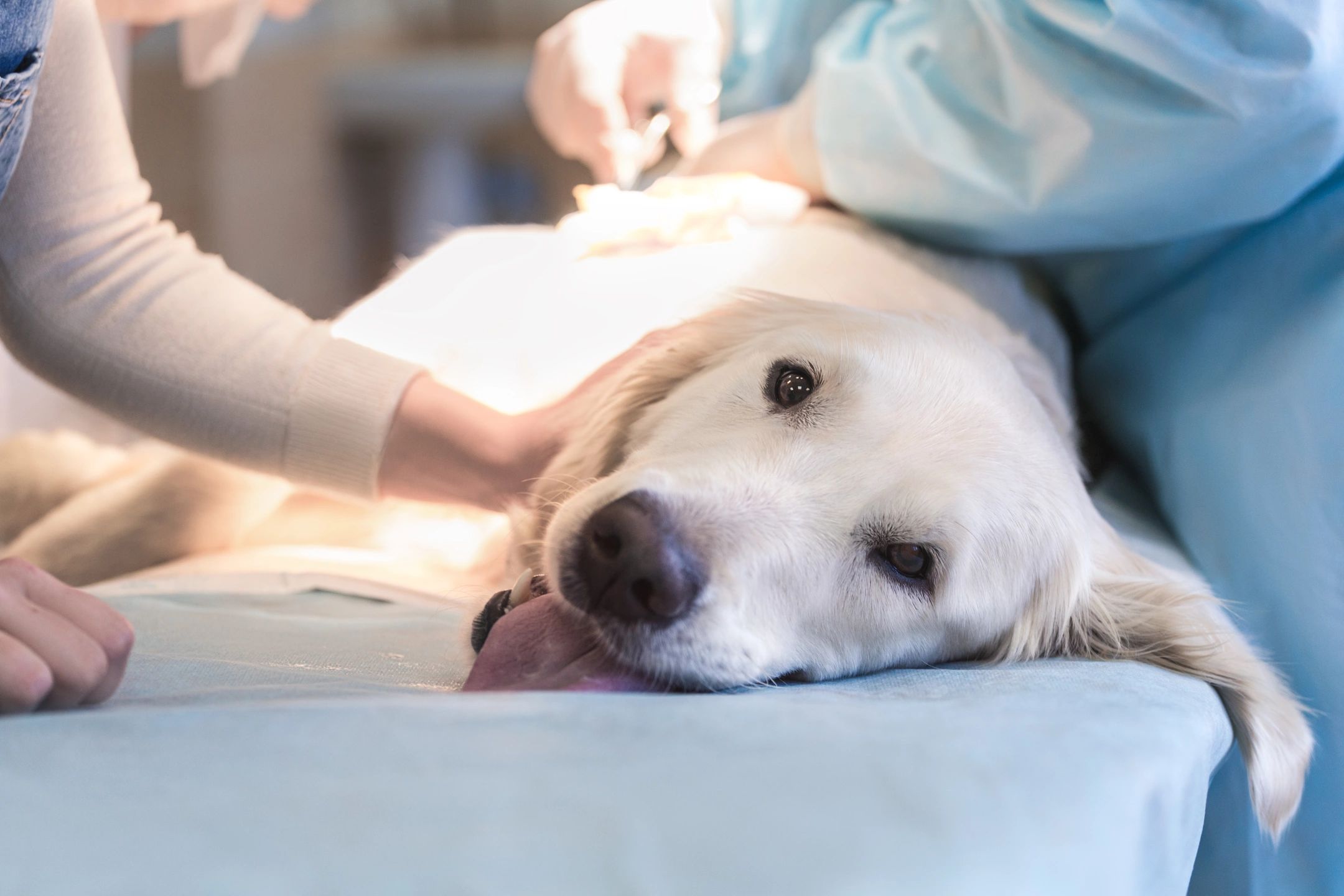
Spay
The tummy will be shaved and fur can be expected to grow back within 4 to 6 weeks. Most of the time suture removal is required in 10 days. Activity needs to be restricted for at least 5 days after the surgery. Leash walks only! Please check the incision site at least once a day. If your pet removes a suture, irritates the incision, refuses to eat, or any other change in their general health please notify us!
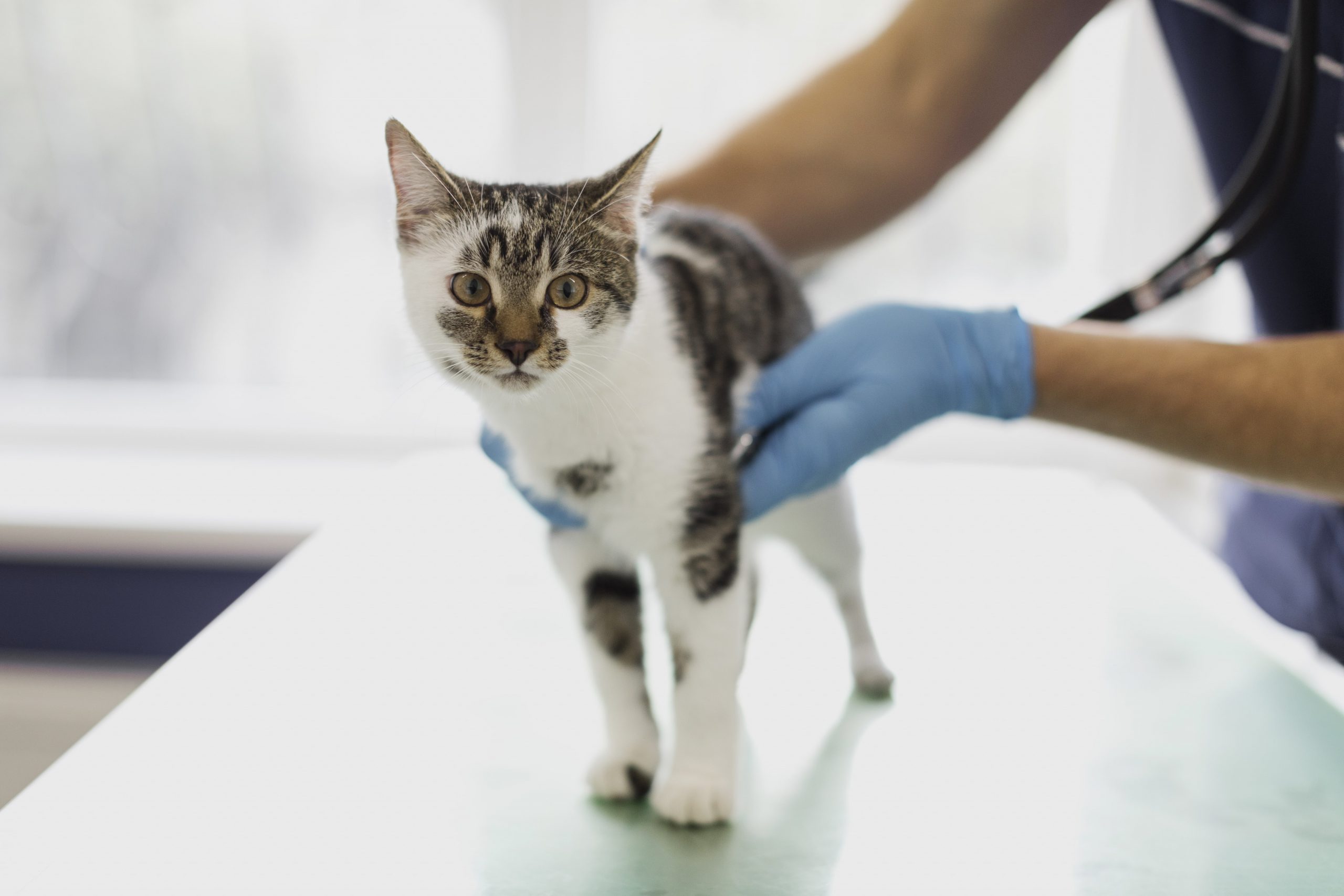
Spay Procedure
Ovariohysterectomy is the medical term for spaying an animal. This procedure consists of surgical removal of the ovaries and uterus. If the ovaries are not removed, the bothersome heat periods still occur even though pregnancy is impossible. Surgery is usually performed after 4 months of age, preferably when your pet is not in her heat cycle. For larger dogs, we recommend to wait to spay until 10 months of age due to prevention of incontinence in their future.
Though it is routinely performed, spaying is a major abdominal surgery, requiring a general anesthesia and sterile operating techniques.
Prevention of pregnancy and heat periods is the main reason for the surgery, but the procedure is often necessary in treating severe uterine infections (pyometra), ovarian and/or uterine tumors, and some skin disorders.
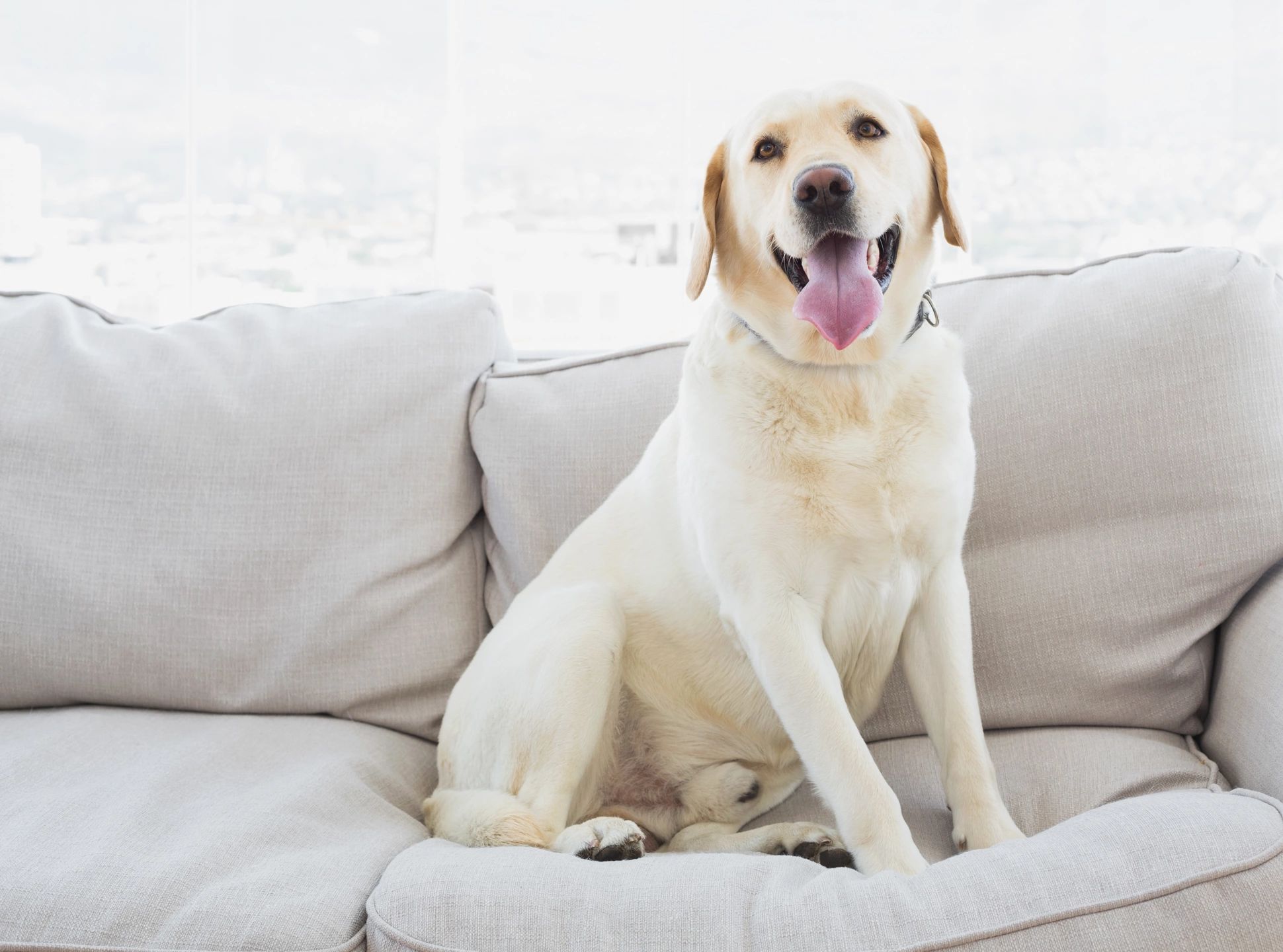
Advantages
There will be no heat periods
There will be no unwanted puppies or kittens
No uterine infections
50% reduction in breast cancer incidence
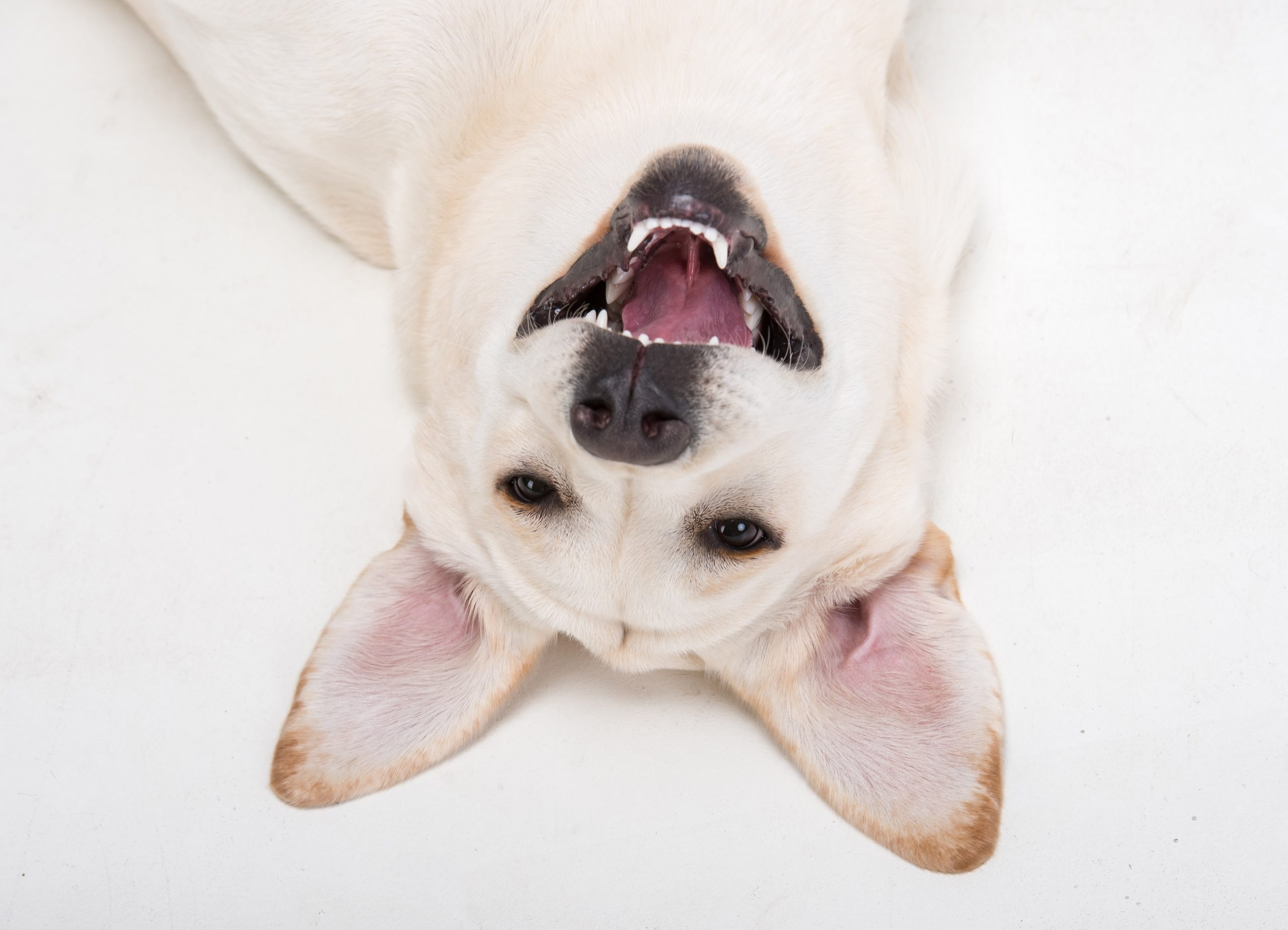
Neuter
Suture removal is NOT required. Sutures are buried underneath the skin and will dissolve in 2 to 3 months. Some areas may need shaving and the fur can be expected to grow back within 4 to 6 weeks. Activity needs to be restricted for at least 5 days after the surgery. This is very important to avoid swelling! Leash walks only! Please check the incision site at least once a day. If your pet chews or damages the incision site, seems depressed, refuses to eat, or if the incision site is red or swollen and oozes pus or blood, please notify us!
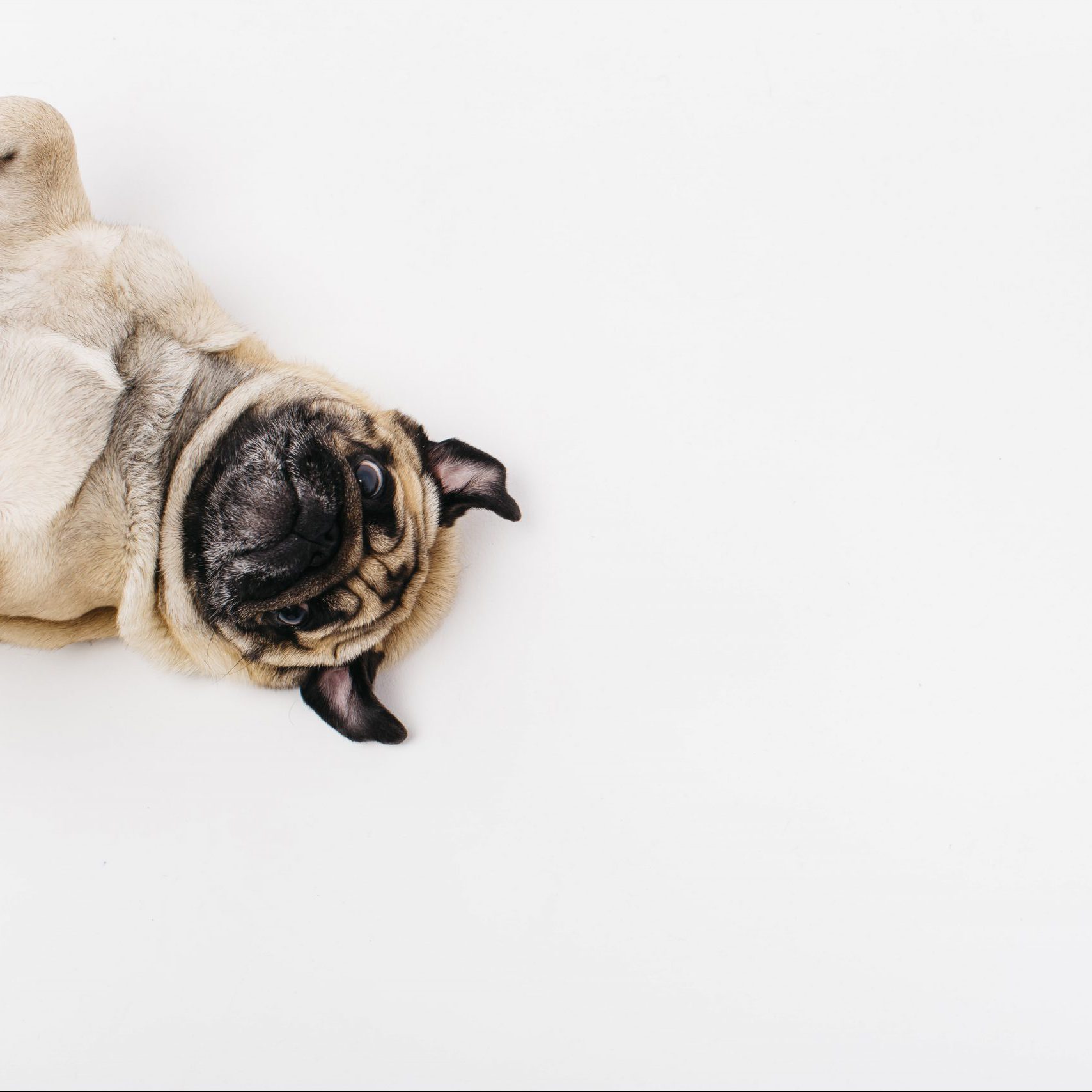
Neuter Procedure
Castration is the medical term for neutering an animal. This procedure consists of surgical removal of the testicles. Such surgery is performed to eliminate sexual activities and render the pet sterile. Neutering usually (but not always) reduces a pet’s tendency to roam and fight. The general level of aggression may also be reduced. However, neutering is not a replacement for obedience training by the owner. In older pets, neutering may be necessary due to diseases of the testicle or prostate gland.
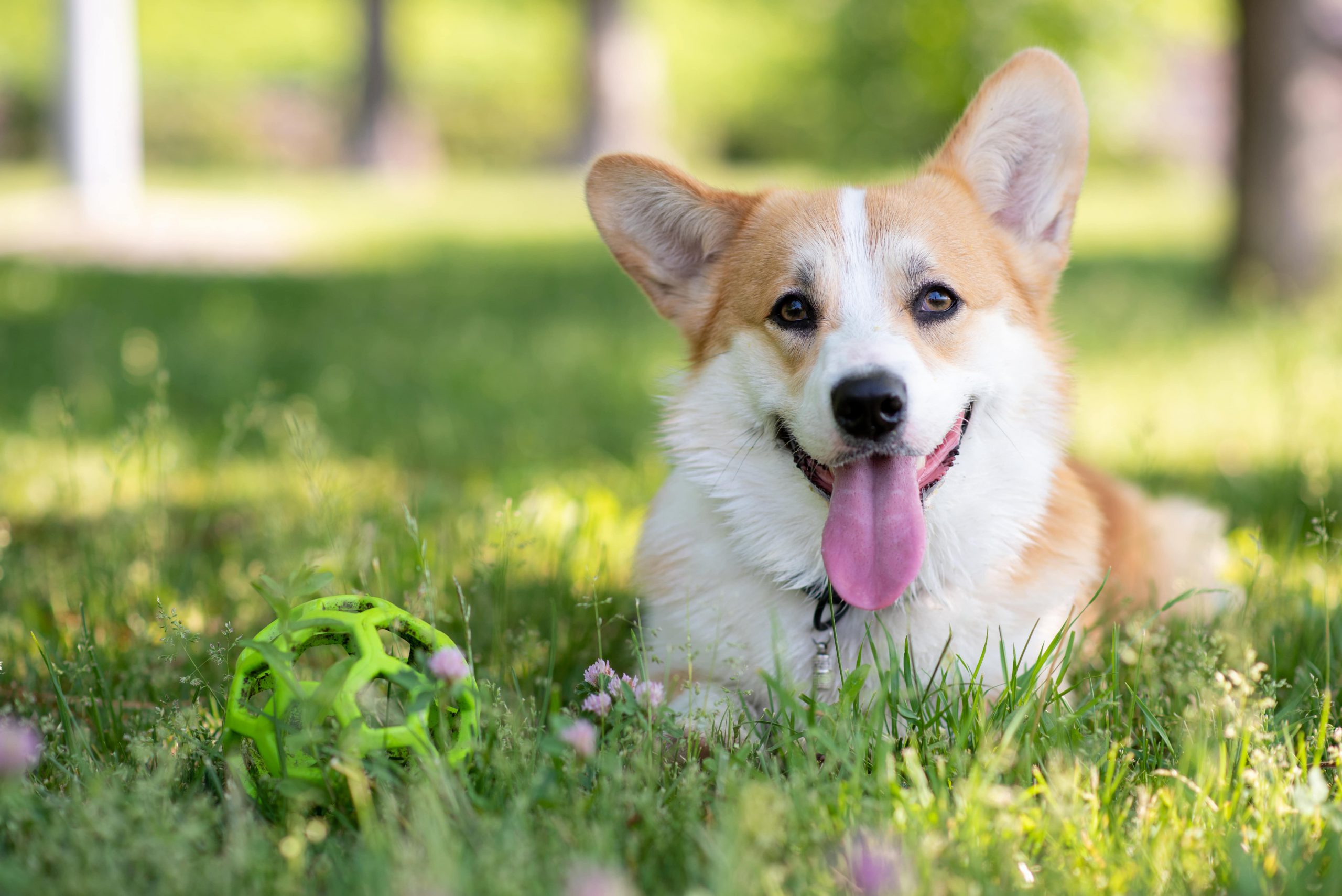
Advantages
Exibit less aggression
Less urine marking
Decreased wandering to seek females in heat
Decreased prostate issues when they get older
No unwanted puppies or kittens
